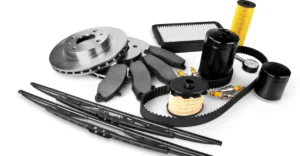Buying a used car is a cost-effective way to own a quality vehicle, but it comes with responsibilities. Whether you’re browsing listings for second-hand cars in Dubai or checking dealer-certified vehicles in Abu Dhabi, doing your homework can help you avoid costly surprises. Here’s what every smart buyer should look for before sealing the deal.
1. Know the Vehicle’s Age and Warranty Coverage
Newer cars tend to have fewer problems and may still be under the manufacturer’s warranty. In hot climates, like the UAE, warranties become even more valuable due to increased wear from heat and dust. If the car doesn’t have a warranty, ensure it gets a comprehensive inspection before purchase.
2. Run a VIN/Chassis Number History Check
Every car has a unique VIN or chassis number that provides key information about its history. Use government platforms like Dubai RTA, Abu Dhabi Police, or the Ministry of Interior to check for accidents, theft, or tampered mileage. A clean record means transparency, while inconsistencies are a red flag.
3. Inspect the Exterior Under Natural Light
A shiny exterior under showroom lighting can hide imperfections. Examine the vehicle outdoors to check for:
- Paint inconsistencies
- Mismatched panels
- Dents or rust spots
- Uneven gaps
These could signal previous repairs or hidden damage. Don’t hesitate to ask questions about anything that looks off.
4. Evaluate the Interior Condition and Features
Step inside and assess the state of the upholstery, dashboard, and controls. Test all features:
- Air conditioning (crucial in hot climates)
- Infotainment and Bluetooth
- Electric mirrors and windows
- All interior and exterior lights
Musty smells may hint at leaks or mold. A clean, functional cabin usually reflects good upkeep.
5. Check Engine Bay and Mechanical Components
Even without being a mechanic, you can spot signs of trouble:
- Look for fluid leaks or rust
- Check belts and hoses for wear
- Ensure the engine bay looks clean and maintained
Always take the car for a test drive. Listen for strange sounds, and feel how it brakes, turns, and accelerates. Not sure? Get a trusted mechanic to do a pre-purchase inspection.
6. Confirm Airbag Status
Airbags are a critical safety feature. On startup, the airbag light should come on and then switch off. Dashboard tampering or uneven seams might indicate that airbags were deployed and not properly replaced. Request documentation for any airbag repairs.
7. Review Mileage vs. Usage
Average annual mileage is roughly 15,000–20,000 kilometers. Low mileage on an old car? It may have been unused for long periods a red flag in high-heat environments. High mileage isn’t bad if the car was regularly serviced. Check service records and make sure they match the odometer
8. Ask About Service Packages and Extras
Many certified dealers offer extras like:
- Extended warranties
- Scheduled maintenance plans
- Roadside assistance
- Oil change bundles
These add peace of mind and reduce long-term maintenance costs. Be sure to factor these into your decision.
9. Take a Thorough Test Drive
This is your best opportunity to understand how the car truly performs. During the test drive, assess:
- Acceleration and braking smoothness
- Steering response
- Suspension comfort
- Ease of parking
Drive on both city roads and highways to evaluate its all-around performance.
Key Red Flags to Watch For
Avoid making emotional decisions. Be wary of:
- Sellers unwilling to provide service records
- Refusal to allow test drives
- Flood or accident history
- Heavily modified vehicles
If something feels wrong, walk away.
Final Thoughts
Buying a used car is a big investment. Take your time, ask questions, and rely on certified inspections whenever possible. If you’re shopping in the UAE, programs like Toyota Certified Pre-Owned offer vetted, well-maintained vehicles with warranties and service options.
For expert inspections, used car evaluations, and hybrid diagnostics, book an appointment with MotorHub today. Proudly serving drivers across the UAE with trusted automotive care.



